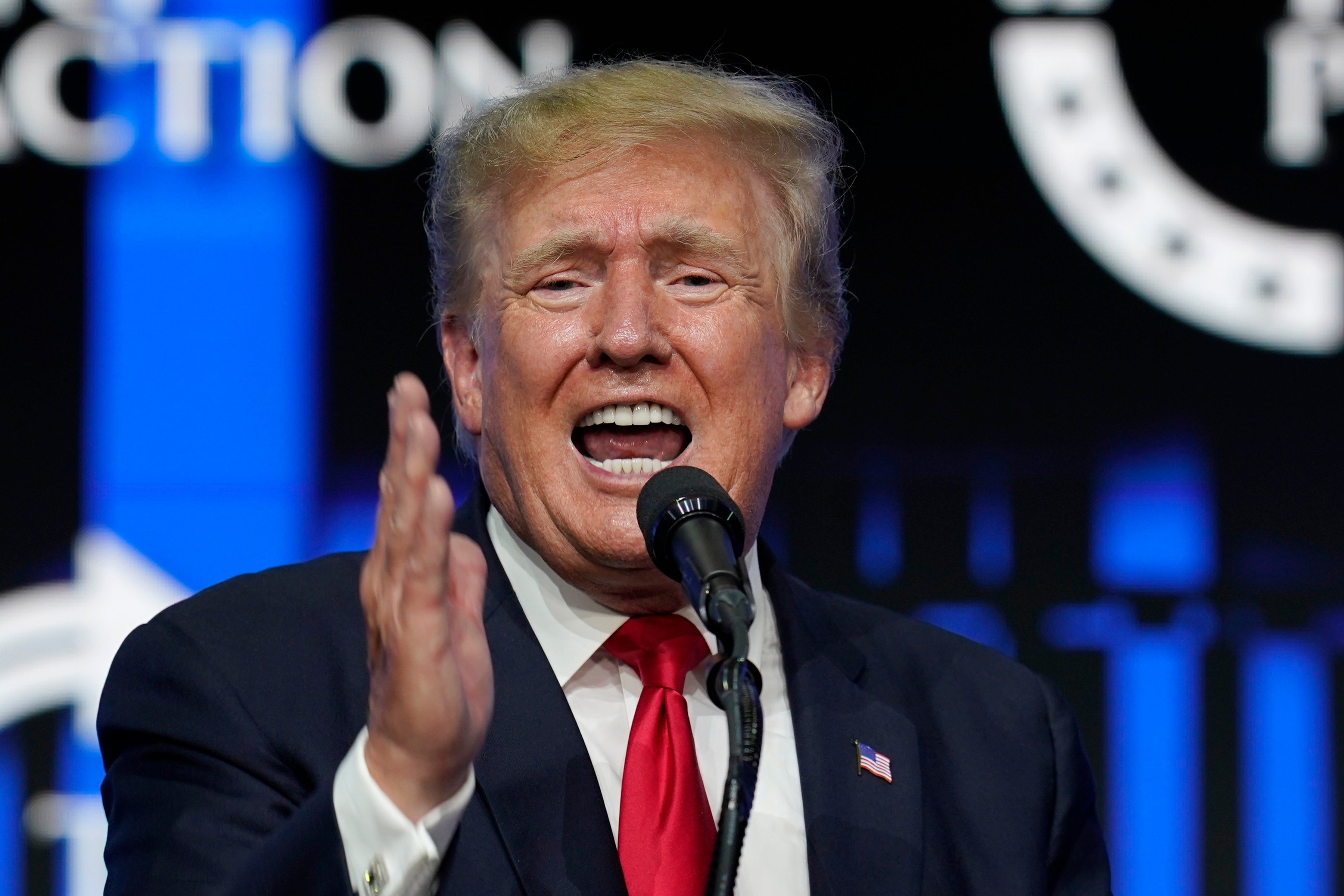Congress might finally see Trump’s tax returns. They still matter
Analysis: It will take years to undo former president’s actions. Evaluating his obligations are the first step, writes Eric Garcia


The US Department of Justice announced on Friday that the IRS must release former president Donald Trump’s income tax returns to Congress.
“The statute at issue here is unambiguous: ‘Upon written request’ of the chairman of one of the three congressional tax committees, the Secretary ‘shall furnish’ the requested tax information to the Committee’,” an opinion from the Department’s Office of Legal Counsel said.
On the surface, it might seem like an inconsequential ruling. Mr Trump didn’t release his tax returns during his 2016 presidential campaign, nobody cared and he won. Then, the American people were fed up with him and voted him out of office.
But just because Mr Trump was able to elude responsibility for his actions until he left the White House doesn’t mean that his tax information doesn’t still matter to the public. On the contrary, as the Republican politicians continue to defend him from accountability, it is necessary for public institutions to show that anyone who seeks offices must be transparent about any potential for wrongdoing.
First and foremost, there is the fact that Mr Trump sold himself as a businessman who was “really rich” and who could therefore not be bought. Multiple stories throughout the years have poked holes to show the gold letters surrounding his name are more gold paint. One investigation from The New York Times in 2018 found that Mr Trump received the equivalent of $413 million from his father’s real estate business. A second investigation from the Times in 2020 found that Trump was able to avoid paying income taxes in 10 out of the last 15 years because he incurred such heavy income losses.
Mr Trump’s preference to tell a distorted version of the truth – “alternative facts”, if you will – to his rabid supporters showed how little he regarded democratic norms and the ability for the American public to make an informed decision. He would have rather that Americans choose the histrionic tycoon facsimile that he portrayed on reality television than the real version of who he was because that person probably “couldn’t get elected dog catcher”, to use his parlance.
Second, it is necessary to know what, if any, foreign interests Mr Trump had before and while he was president. Even though he is out of the White House, presidents’ foreign policy has effects that long outlast them and it can take years to undo. Conspiracy theories were abundant about Trump being a stooge of other countries. But the truth is without any documentation, nobody really knows whether this is true or to what extent. If the president was using his office to advance his business interests, it is necessary to assess the damage that must be reversed.
Last, it is simply a matter of pure accountability. Throughout his life, Mr Trump has done the equivalent of shutting off the video game console when he is losing so he never has to admit defeat. Similarly, when he was impeached the first time, all but one Republican voted to convict him for using the office of the presidency to blackmail the Ukrainian government. During his second impeachment, he wasn’t convicted and the Republican Party has made defending him a top priority a full six months after his presidency, to the point they are blaming the Speaker of the House, whose life was threatened on 6 January during the riot he incited.
All of this gives the signal that another lawless Republican, or even a future Democrat with little regard for checks and balances, can not only not be transparent with voters, but once they become the party nominee or even, Heaven forbid, win the office, their party will do whatever it takes to prevent them from being held accountable.
The Trump presidency may be over. But the havoc it wrought on democratic norms and the safeguards that are meant to prevent lawlessness will likely require years of trying to hold him and his enablers accountable. His tax returns are the first step in this.
Join our commenting forum
Join thought-provoking conversations, follow other Independent readers and see their replies
Comments

Bookmark popover
Removed from bookmarks